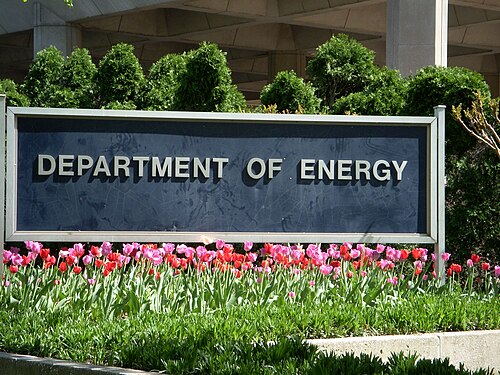The US Department of Energy (DOE) is reportedly considering slashing hundreds of millions of dollars in funding for two major carbon removal projects in Texas and Louisiana, casting uncertainty over the future of flagship clean energy initiatives launched under President Joe Biden.
The projects, known as Direct Air Capture (DAC) hubs, were announced by the DOE’s Office of Clean Energy Demonstrations to commercialise emerging technologies capable of removing carbon dioxide directly from the atmosphere. At full capacity, the hubs are expected to extract more than 2 million metric tonnes of CO₂ annually — significantly surpassing the output of the world’s largest existing DAC facility in Iceland.
The two largest US DAC hubs include Louisiana’s Project Cypress — managed by research firm Battelle in partnership with Climeworks and Heirloom Carbon Technologies — and the South Texas DAC Hub, proposed by Occidental Petroleum subsidiary 1PointFive alongside Carbon Engineering and engineering firm Worley.
Sources familiar with the matter, who spoke on condition of anonymity, said the projects are on a list of Biden-era climate programmes being scrutinised as part of budget negotiations in Congress. The funding cuts are reportedly under review by Energy Secretary Chris Wright, as Republican lawmakers push to redirect spending towards tax reductions.
Each hub was awarded significant funding under the previous administration — $550 million for Project Cypress and $500 million for the South Texas Hub. However, both have so far only received initial disbursements of $50 million apiece.
A DOE spokesperson confirmed that a department-wide review is underway to ensure alignment with the Trump administration’s policy priorities. “This review is ongoing, and speculation by anonymous sources about the results of the review are just that – speculation,” the spokesperson said.
While the fate of the two large-scale hubs hangs in the balance, the status of around 20 smaller DAC research projects — also selected for federal grants under Biden — remains unclear.
One source involved in a project warned that the initiatives could collapse within months if the remaining funding is not secured soon. “The demonstration projects are capital-intensive and cannot survive prolonged uncertainty,” they said.
In a letter to Louisiana’s congressional delegation, the state’s Secretary for Economic Development, Susan Bonnett Bourgeois, urged officials to intervene. “I urge you to contact DOE Secretary Chris Wright and ask him to take every necessary step to advance this critically needed federal grant,” she wrote.
While Occidental Petroleum did not comment on the potential funding cuts, the company has previously discussed the importance of DAC subsidies in conversations with President Donald Trump, according to remarks made during a February investor call.





















